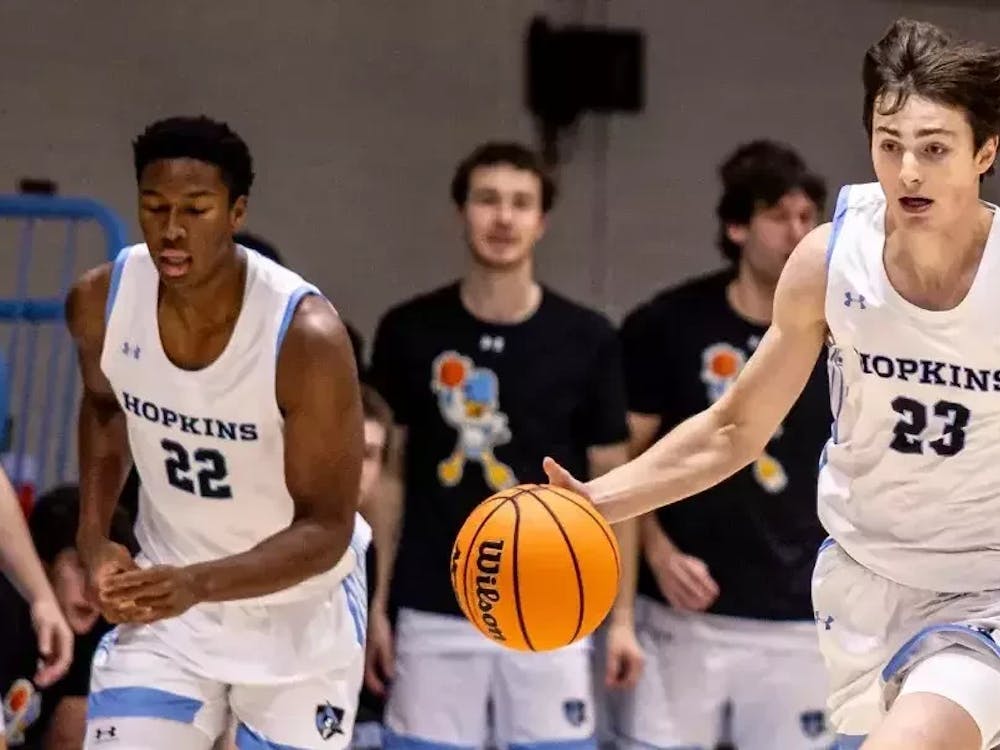The U.S. Department of Energy’s (DOE) Early Career Research Program recognizes the leading scientists and university-based researchers across the country.
This year, the DOE’s prestigious program has chosen to award 73 scientists — including Michael Shields, assistant professor in the Department of Civil Engineering.
Shields’ award-winning project, titled “Low-dimensional Manifold Learning for Uncertainty Quantification in Complex Multi-scale Stochastic Systems,” develops new methods to quantify uncertainties in numerical models of structural materials in a way that merges probability and advanced machine learning techniques.
“With these approaches, we hope to improve the way materials are modeled to better understand their performance considering uncertainties in the material’s microstructure,” Shields said in an interview with The News-Letter.
Since he received his PhD in 2007, Shields has worked in the field of uncertainty quantification (UQ).
Scientists who study UQ attempt to determine the influence of various types of uncertainties on the performance of materials and structures, even if some elements of the structures are unknown. For example, even if the exact loads on a structure is unknown at a given time — say the number of vehicles on a bridge — the structure needs to be designed so that it’s economical, reliable and safe despite the uncertainty.
“In my work, we develop methods to quantify these uncertainties mathematically and computationally, mostly using probability theory,” Shields said.
According to the U.S. Department of Energy, research topics for the award fell within one of the Department’s Office of Science’s six major program offices: Advanced Scientific Computing Research; Basic Energy Sciences; Biological and Environmental Research; Fusion Energy Sciences; High Energy Physics and Nuclear Physics.
Shields explained that he was inspired to work in computation mechanics and computational materials science when he was an undergraduate student at Loyola University Chicago, where he studied physics.
“In my sophomore year I was selected for a research assistant position at Argonne National Lab,” Shields said. “Research got into my blood after that and it made me realize that I wanted a career in research, but I wanted to do something more tangible than physics, so I went to an engineering school where I studied structures and mechanics.”
While his presence at Hopkins has led to many successful projects, one of his proudest accomplishments is his work setting up the Civil Engineering Undergraduate Research Lab course, where all students, beginning in their sophomore year, are introduced to the research process and rich resources that Hopkins offers.
“My research experience as an undergraduate launched me onto a career in research,” Shields said. “Even if you don’t ultimately end up pursuing a career in research, the experience you gain will help you develop critical thinking skills that will benefit you in whatever career you pursue.”
In addition to his work with Hopkins, Shields is also an active member of several professional organizations including the American Society of Mechanical Engineers, American Society of Civil Engineers, U.S. Association for Computational Mechanics and Society of Industrial and Applied Mathematics.
The DOE Early Career award is Shields’ third young investigator award. Although Shields is the recipient of numerous awards, he has no plans of slowing down. He is already immersing himself in other projects.
Currently, Shields is collaborating with scientists from the University of Florida to use machine learning techniques to automate large-scale wind tunnel experiments.
The automation will help engineers to better understand random fluctuations in extreme wind pressures on structures.
While the competitive world of science research can be daunting, Shields reminds students and young researchers to keep striving for innovation, and to not shy away from challenges that may seem daunting.
“I want to encourage every undergraduate to participate in some sort of research while here at Hopkins,” Shields said. “And don’t be afraid to be wrong, but learn from it when you are. For every good idea I have, I probably have about 10 bad ideas but I need those bad ideas, so I can find the good ones.”




